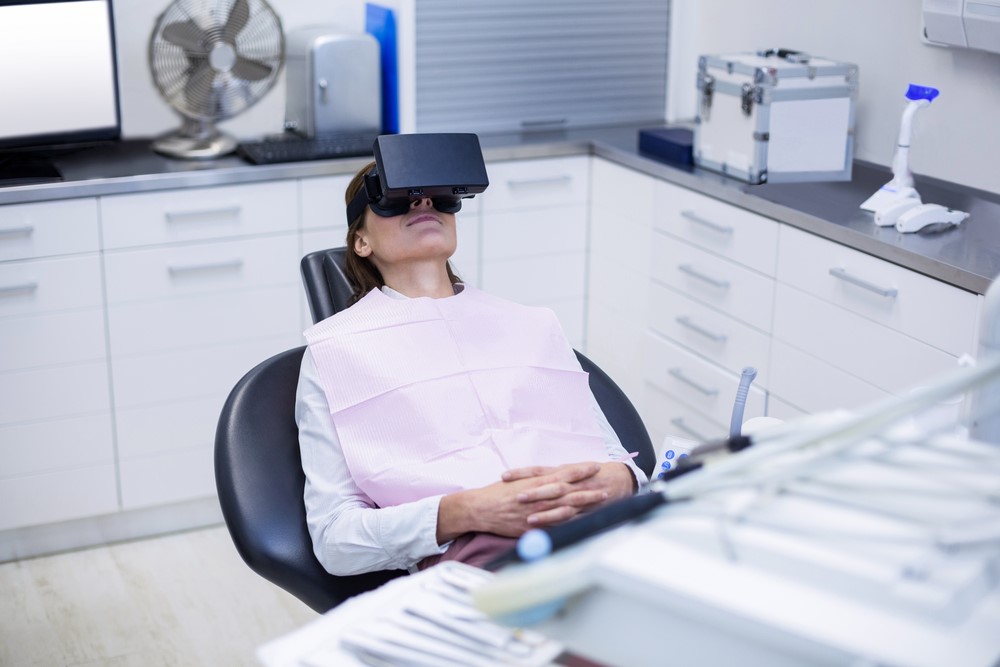Virtual reality therapy: The future of chronic pain management?

Could virtual reality tools be effective in helping patients ‘unlearn’ their chronic pain? Professor Christopher Eccleston from the University of Bath’s Centre of Pain Research tells us how digital therapeutics are shaping the future of pain management.
A digital software developed by Finnish drugmaker Orion is aiming to address chronic pain conditions using virtual reality (VR) devices that provide an immersive gamified therapeutic treatment program.
The therapy uses a VR headset to guide people with chronic pain through a series of cognitive behavioural therapy (CBT) exercises that are designed to help them overcome the fear of movement – also known as Kinesiophobia, and then re-engage in an active life. The modules are presented in a gamified, personalised mode that can be tailored to the patient’s needs.
Orion developed the software in close collaboration with Professor Christopher Eccleston, a pain specialist from the University of Bath, and technology group Healthware.
“There were a number of people at Orion who had an interest in digital therapeutics, but also an understanding that future solutions to chronic pain are not going to be just delivered by pharmacology,” Eccleston tells pharmaphorum.
“As you start to think more about chronic pain, you realise that chronic pain is really about function and disability; it's less about altering the sensation of pain and more about altering behaviour.”
After developing the technology, the team ran a feasibility study for six-months to determine its response and tolerability. Due to encouraging results, a pilot study was opened to the public last year in Helsinki, Finland.
The prospective, randomised, double-blind, 3-arm parallel group compared the digital therapy for pain with a control group and an open standard care arm over 6-8 weeks. Patients were provided with the devices at home and received technical support remotely.
“There’s such an unmet need for chronic pain management that people came forward really quickly to join the trial,” says Eccleston.
“I think rehabilitation in chronic pain has been overdue a major change. There is absolutely no reason why we should still be doing it in a rather old-fashioned Victorian way of visiting a specialist's office. It needs to be taken outside the clinical setting and into the home; it needs to be made active!”
Clinical trial success
In June, Orion announced the clinical trial results showing the software had a statistically significant benefit over placebo and standard care interventions for fear of movement, patient clinical global impression of change and quality of life in adult patients with chronic low back pain.
Results from the ‘VIRPI’ study in patients with chronic pain showed that the TSK score (Tampa Scale for Kinesiophobia assessing fear of movement) was significantly reduced at the end-of-intervention.
According to Eccleston, the results highlight the potential for digital therapeutics to expand treatment options.
“What digital therapeutics will be really very good at is improving access to treatments that people wouldn’t necessarily have access to otherwise,” he says. “Unfortunately, the healthcare system is often dependent on the skills and expertise of individual practitioners delivering treatment. With automated, remote technology such as this we can provide solutions in a home environment, tailored to individual needs.”
As patients received positive results in the trial without specialist intervention, there is an opportunity to scale the treatment up. Patients will also benefit from having a sense of control over their treatment.
“We're interested in people being active and engaging with the world, moving in that world, and getting involved with what matters to the,” says Eccleston.
“There are so many aspects to virtual reality that are useful in pain management: principally, it allows immersion far beyond what is possible by instruction, it creates emotionally rich teachable experiences that take time to do face to face, and it is portable The remote technologies enable people to try things out safely and for their behaviour to be modified in a way they wouldn’t necessarily be able to achieve in the ‘real world.’
Following the announcement of its pilot study results, Orion is looking for partners to further develop and commercialise the software. And as digital solutions become more widespread in healthcare due to COVID-19, Eccleston is optimistic the therapy is here to stay.
“I think we are seeing a rapid reappraisal of the way we organise healthcare in long-term conditions. The pandemic has been an accelerator and created much needed disruption in the way in which we think about delivery of healthcare. I’m excited to see what the future holds! If we get this right we can put evidence based interventions into the hand of the many not just the few.”
About the interviewee
Professor Christopher Eccleston directs the activities of the University of Bath's Centre for Pain Research. His research interests include evidence based pain management, self-management of chronic illnesses, assistive rehabilitative technology, and attentional mechanisms of analgesia.












